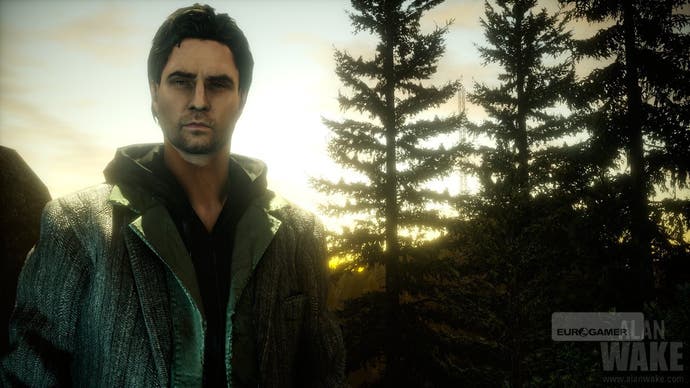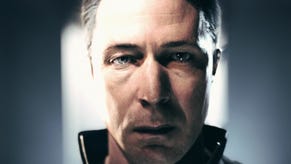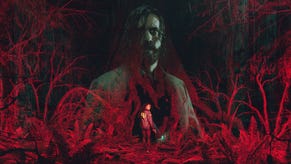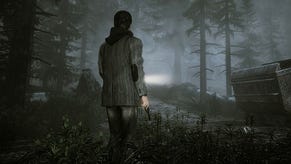E3: Alan Wake
Alan in the Dark.
For the last few years, Alan Wake's been more of a rumour than an actual game: an early next-gen proposition that surfaced briefly to let rip with a shower of moody screenshots before subsequently going quiet for a little bit too long. Every so often, gossip about its fate would bubble up from the deep - idle chatter variously suggesting that it had been cancelled, that it was looking spectacular, or that it had been transformed into a hillbilly water sports game called Alan Wakeboarding - but the stories always dissipated fairly quickly after breaking, and they left nothing behind apart from a few hints of narrative.
And that handful of early images. Focusing on a moody brooder knocking about in his winter wardrobe, and set against a craggy, backwoods environment, they made Remedy Entertainment's project look dreamy and intriguing, an arty experiment shrouded in fog and classy mystery. In other words, Alan Wake didn't really look like the kind of game in which you'd have to fight off a possessed digger. In fact, however, it's exactly that kind of game.
What was probably most surprising about the latest, and most substantial, sighting of Alan Wake, shown at Microsoft's E3 briefing, was how fast-paced it all is. Rather than glumly wandering around in a cardigan, Wake's picking through the shattered ruins of a house, ducking falling trees and flying axes, and fighting whole legions of spectral hillbillies as well as the construction vehicles they've brought with them. Behind closed doors in the Microsoft booth, we're given an extended viewing as a developer plays through an early part of the game, and the sensation remains the same. This is Steven King rather than David Lynch, then - pacy, smart and fairly slick as it sends you blundering around in dark woods, and waiting for monsters to lunge at you out of the damp leaves.

Wake's storyline unfolds in a trendy episodic format, taking the shape of discrete chunks that seem to clock in around the hour mark, topped with a brisk recap and tailed with a cliff-hanger. A handy borrowing from Alone in the Dark - and please don't borrow anything else - it's one that dictates the game's pace, allowing for a nice blend of exposition and fighting, while simultaneously creating a smooth pipeline for any future DLC to slide down.
Beyond this structure, the plot itself is charmingly potboilerish: Remedy's calling its game a psychological action thriller, and that seems to translate into a narrative in which every major event is swiftly followed by a mysterious repercussion that can only be truly expressed in italics. Alan's taken a holiday...but his wife has gone missing! He's finally gotten over his writer's block and finished another novel...but he can't remember writing it, and now his fictional events are starting to come true! He's decked himself out in a lovely tweed jacket...but he's wearing it on top of a hoodie! What's he thinking?
All of which eventually comes down to pottering about the wooded coastal town of Pride Falls (never holiday in a spot called Pride Falls) trying to unravel the whole ghastly mystery while taking on swarms of murderous paranormal locals. Much of the success of Alan Wake will presumably revolve around the twists and turns of the story, then, and the strength of the world it conjures up - there's a fairly large cast of characters, by the looks of it, and regular intrusions of voiceover from Alan to drive events forward - but that's hard to get a real sense of so far, and for the time being, most of what we're shown revolves around combat.
















